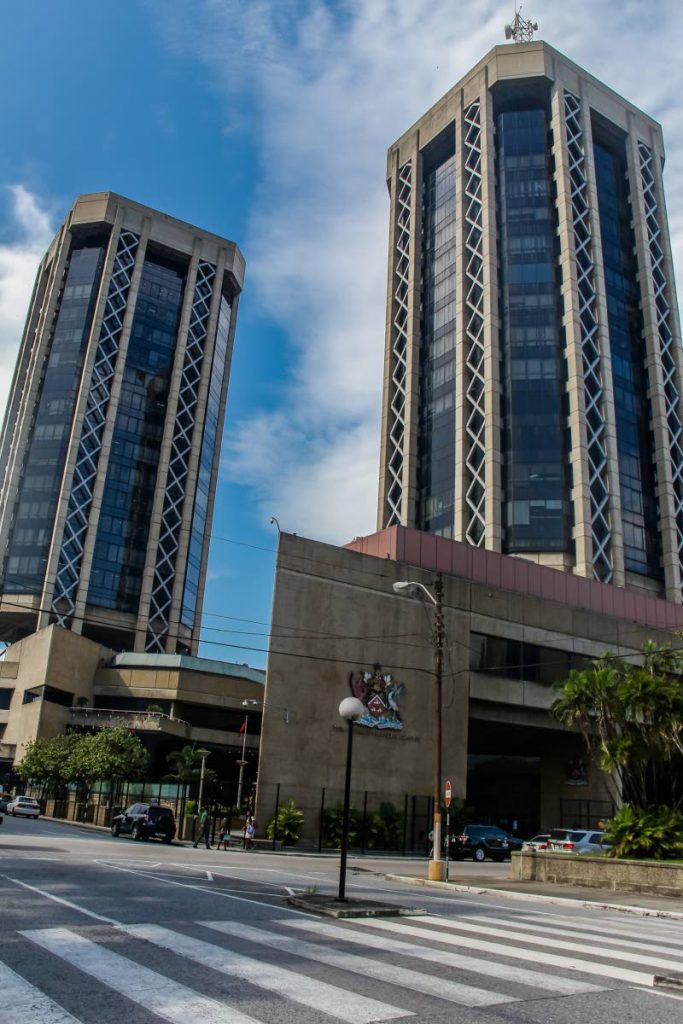Can TT afford to pay more taxes?

As the government continues to grapple with falling revenue, taxation continues to be its main source of income, but with the economy in its eighth consecutive quarter of negative or stagnated growth, can Trinidad and Tobago bear the burden of any more taxes?
The government’s tax policy over the last two years has largely fallen short of its intended revenue targets, and is contributing to the contraction of the economy, economist and lecturer at the University of the West Indies, Dr Vaalmikki Arjoon told Business Day.
For the first six months of fiscal 2017, tax revenue was $13.2 billion — nine percent lower than the same period in fiscal 2016. In fiscal 2016, projected tax revenue was $40.8 billion, but instead earned $29.7 billion — a shortfall of 27.2 percent.
This despite increases in the Green Fund Levy and the Business Levy; the introduction of the seven percent “online shopping tax”; the “millionaire’s tax” of an additional 25 percent tax on income over $1 million; and the introduction of VAT on yacht-in-transit equipment, which was vehemently contested by the yachting industry and subsequently removed — all announced in the 2017 Budget presentation.
“The country was already at a point where the economy was contracting so the consumption expenditure (consumer spending) and investment expenditure (capital spend by firms) were already declining,” Dr Arjoon said.
Increasing taxation, then, would have caused further contraction in the economy since an increase in taxation would have naturally exacerbated already rising costs of doing business, with spill-over effects resulting from firms downsizing either through reduced inventory, layoffs or other cost cutting measures.
These policies have stifled the business sector, reduced competitiveness and increased uncertainty, Dr Arjoon said.
“Coupled with current state of economy, this has reduced confidence. Businesses will pull back and either watch and wait for some signs of recovery or there will be capital flight where they choose to invest outside of Trinidad and Tobago,” he said.
The conversation now needs to switch from taxation to expenditure, said Wade George, Caribbean Tax Managing Partner for Ernst & Young.
“I don’t think there is more room for greater taxation without really damaging the economy or slowing it down completely,” George said. “You can’t tax your way out of a recession.”
There is a limit to how much the government can raise taxes in terms of what the country can take and what the population can absorb.
“I don’t think we’ll see much more taxes in the new Budget, but there are other things the government can substitute — for example reducing or removing subsidies on fuel and making utility prices more market driven,” he said.
There is some leeway for the government in terms of existing or announced taxation policies, he noted, for example, the reintroduction of the Property Tax and even a higher value added tax.
“Almost every country has some form of Property Tax. And Trinidad and Tobago has one of, if not the lowest VAT rate in the entire region. These would be the easiest tax policies to sell if they needed to,” George said.
In fiscal 2016, the government had expected to earn $12.4 billion from VAT, but only earned $7 billion. For fiscal 2017, the amount collected in the first six months is $2.8 billion or 22 percent lower than the same period in the previous year.
The population would, however, likely demand improved efficiency and value for money should tax rates increase.
“There is no connection for people between the payment and return or value for money, and this is something the government has to address. Once you see it translate into something of value then you might have an easier time converting it a cost you are willing to pay,” George said.
In the early 2000s, during the latest energy boom, since so much government revenue came from that sector, government expenditure “didn’t feel like your money,” he suggested.
Now that the energy sector can’t contribute, citizens have to step up, and now they want to know how their money is being spent.
“A large part of the noise isn’t the tax itself but how it is being used,” George contended.
Fundamental to the process, however, is tax collection management.
“It’s inefficient,” Dr Arjoon said bluntly, adding that the proposed Revenue Authority needs to be implemented as a priority.
Businesses are evading taxes, and this is a disadvantage for the Government.
“We need to pay attention to the collection process. Trade ‘misinvoicing’, for example, (where firms deliberately misstate the value of their export cargo as less than it is worth) has cost the country US$33.6 billion in just over a decade. We are losing revenue and leaking foreign exchange,” Dr Arjoon said.
George agreed that to a large extent, inefficiency is the bane of tax collection process, with the current systems at Board of Inland Revenue, the country’s tax collection agency, not the most client and consumer friendly.
“The motivation is not there, nor systems for management and accountability. There is very little in terms of clear guidelines for interaction with the public for issues around collection. The system needs a complete transformation,” he said.
He noted that, just as the country has heard several times before, the Revenue Authority will likely be raised in the Budget — and despite the difficulty in finding a bipartisan solution to tax reform, it has to be done.
“It has to be done correctly. This is not the first time tax reform has ever been done. It’s not like you can’t find a model out there,” he said.


Comments
"Can TT afford to pay more taxes?"